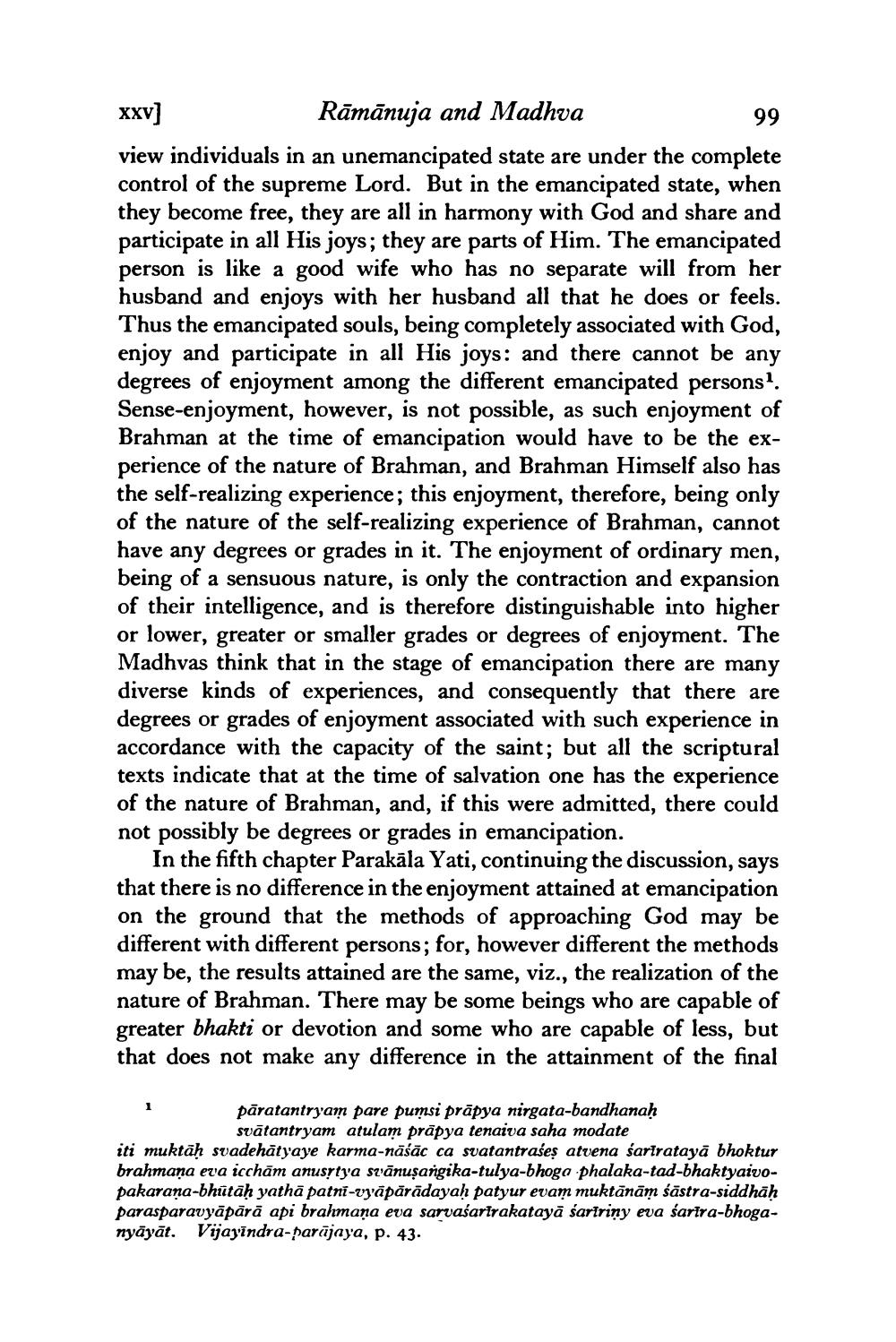________________
xxv] Rāmānuja and Madhva
99 view individuals in an unemancipated state are under the complete control of the supreme Lord. But in the emancipated state, when they become free, they are all in harmony with God and share and participate in all His joys; they are parts of Him. The emancipated person is like a good wife who has no separate will from her husband and enjoys with her husband all that he does or feels. Thus the emancipated souls, being completely associated with God, enjoy and participate in all His joys: and there cannot be any degrees of enjoyment among the different emancipated persons. Sense-enjoyment, however, is not possible, as such enjoyment of Brahman at the time of emancipation would have to be the experience of the nature of Brahman, and Brahman Himself also has the self-realizing experience; this enjoyment, therefore, being only of the nature of the self-realizing experience of Brahman, cannot have any degrees or grades in it. The enjoyment being of a sensuous nature, is only the contraction and expansi of their intelligence, and is therefore distinguishable into higher or lower, greater or smaller grades or degrees of enjoyment. The Madhvas think that in the stage of emancipation there are many diverse kinds of experiences, and consequently that there are degrees or grades of enjoyment associated with such experience in accordance with the capacity of the saint; but all the scriptural texts indicate that at the time of salvation one has the experience of the nature of Brahman, and, if this were admitted, there could not possibly be degrees or grades in emancipation.
In the fifth chapter Parakāla Yati, continuing the discussion, says that there is no difference in the enjoyment attained at emancipation on the ground that the methods of approaching God may be different with different persons; for, however different the methods may be, the results attained are the same, viz., the realization of the nature of Brahman. There may be some beings who are capable of greater bhakti or devotion and some who are capable of less, but that does not make any difference in the attainment of the final
pāratantryam pare pumsi prāpya nirgata-bandhanah
svātantryam atulam prāpya tenaiva saha modate iti muktāḥ svadehātyaye karma-nāśāc ca svatantrases atvena śariratayā bhoktur brahmana eva icchăm anusytya svānuşangika-tulya-bhoga phalaka-tad-bhaktyaivopakarana-bhitah yathā patni-vyāpārādayah patyur evam muktānām śāstra-siddhāh parasparavyāpārā api brahmaņa eva sarvasarirakatayā saririny eva sarira-bhoganyāyāt. Vijayındra-parājaya, p. 43.




